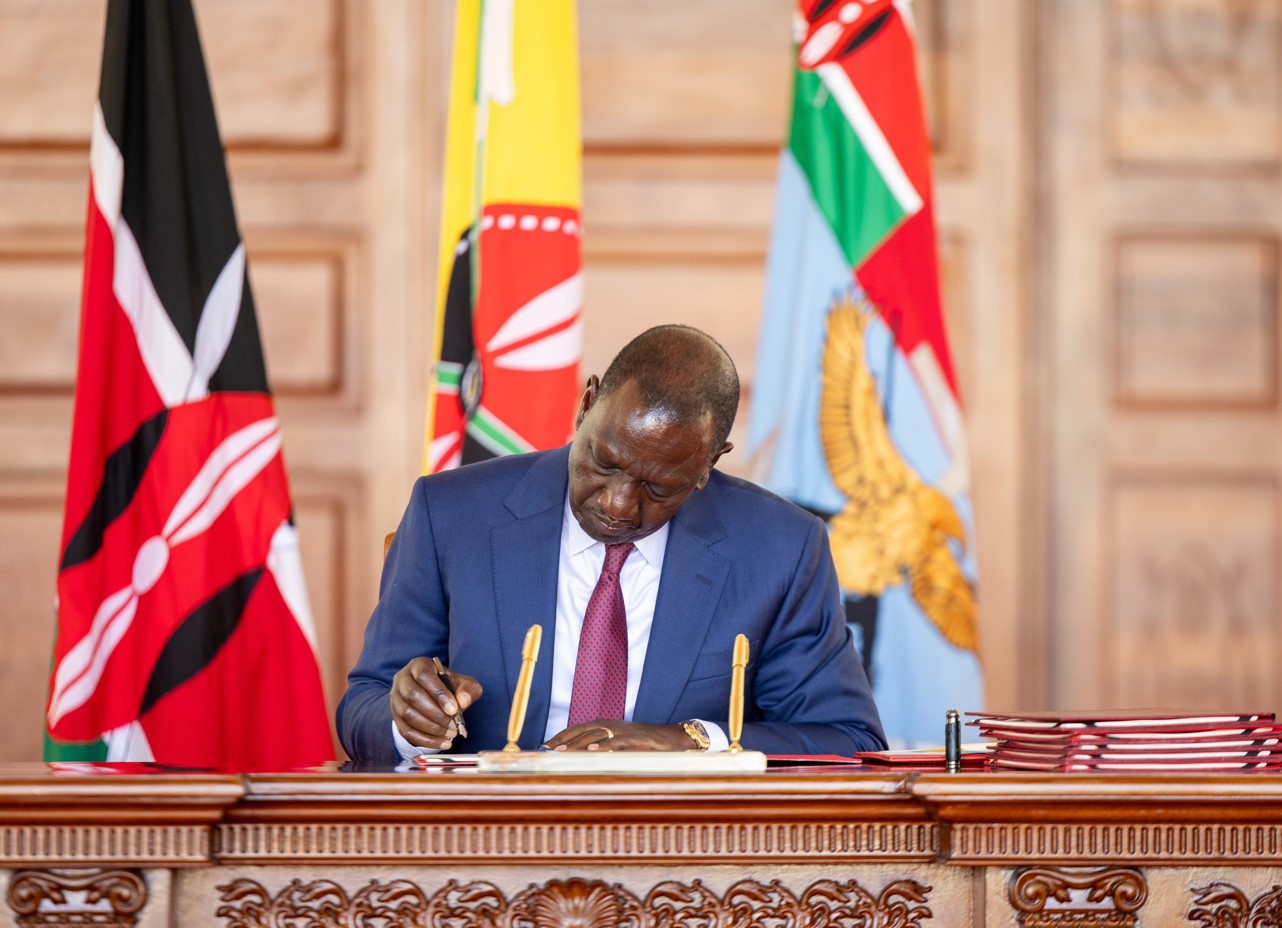Explainer: How a bill is withdrawn in Kenya's legislative system

The legislative process is the system by which propositions made in Parliament are translated into law.
Kenya has three arms of government: the executive, legislature, and judiciary.
According to Article 94 of the Kenyan Constitution, the Republic's legislative authority comes from the people and is vested in and exercised by Parliament at the national level.
More To Read
- Sh73.2 billion raised for Affordable Housing in 2025, only 1,795 units delivered
- Housing levy funds surge to Sh73 billion despite slow project rollout
- Ex-Turkana MP Christopher Nakuleu joins President Ruto’s expanding team of advisers
- Cabinet secretaries make new appointments to key state agencies
- Ex-CS Justin Muturi claims Ruto controls Cabinet with an iron fist, stifling dissent
- What President Ruto expects from his newly appointed cabinet secretaries
The county assemblies serve as the foundation at the county level.
A legislature's principal function is to enact, amend, or repeal laws.
The legislative process is the system by which propositions made in Parliament are translated into law.
Furthermore, it includes several procedural phases that laws must go through within the system, from basic conceptions to established legislation.
What is a Bill?
A bill is a proposed law for introduction in a House of Parliament. Bills seek to introduce a new legislation, to amend an existing legislation or to repeal existing law(s)
Origination of bills
Bills can originate from several sources within the legislative framework. They may be introduced by the Executive branch, typically through a member of the House such as the Leader of the
Majority Party or the Minority Party, and usually through a Committee of the House, often led by the Chairperson.
Individual Members of the National Assembly also have the authority to introduce bills directly to the House. In addition, bills can be co-sponsored by multiple members, offering another avenue for introduction.
Committees of the House are another source of bills. In this case, a bill is introduced through the Chairperson or a designated member of the Committee responsible.
Political parties within Parliament can also initiate or sponsor legislation. For instance, President Uhuru Kenyatta signed the Military Veterans Bill, 2022 into law as part of this process.
Public involvement in the legislative process is facilitated through petitions. According to Article 119 of the Constitution and the Standing Orders, members of the public can petition Parliament to legislate on specific issues.
Such petitions are introduced to the House by the Speaker or a member and are then committed to the relevant Departmental Committee for further action. Alternatively, members of the public can submit legislative proposals directly to Members of Parliament for consideration.
Withdrawal of Bills
The National Assembly Standing Orders explain how a bill can be withdrawn
A bill can be withdrawn either before the commencement of business or during the reading of any stage on the Order of the Day. The Member in charge of the bill may claim to withdraw it without prior notice.
If the Speaker determines that the claim to withdraw is not an abuse of the House's proceedings, the Speaker will direct that the bill be withdrawn.
A bill subject to Standing Order 114A can only be withdrawn with the Speaker's permission.
Once a bill has been withdrawn, it may be reintroduced in the House, subject to the provisions of Standing Order 114 (Introduction of Bills) and re-publication.
If a Member wishes to withdraw a bill before it is introduced to the House, the Member must notify the Speaker in writing, specifying the reasons for the withdrawal
The Speaker has the authority to exempt a legislative proposal from the requirements of Standing Order 114 (Introduction of Bills) under specific conditions.
Such exemptions may apply if the proposal originates from the Party forming the National Government, or from a constitutional Commission or Independent Office, and is related to their mandate.
Exemptions can also be granted if the proposal aims to implement a House resolution or a recommendation from the Public Petitions Committee to enact, amend, or repeal legislation.
In addition, if the proposal is identical to one that was previously passed by the House but lapsed at the end of the last Parliament's term, or if it was introduced by the same Member and read a second time before lapsing, an exemption may be granted.
To obtain an exemption, the proposal must be accompanied by relevant documentation
"If the proposal comes from the National Government Party, a copy of the Cabinet approval is required," explains the Speaker. "For proposals from a Commission or Independent Office, the policy underpinning and evidence of stakeholder consultations must be provided," reads the Standing Orders.
The Party forming the National Government may also designate the Member under whose name the legislative proposal will be published. Once the exemption is granted, the Speaker will direct that the proposal be published as a bill.
Top Stories Today















































